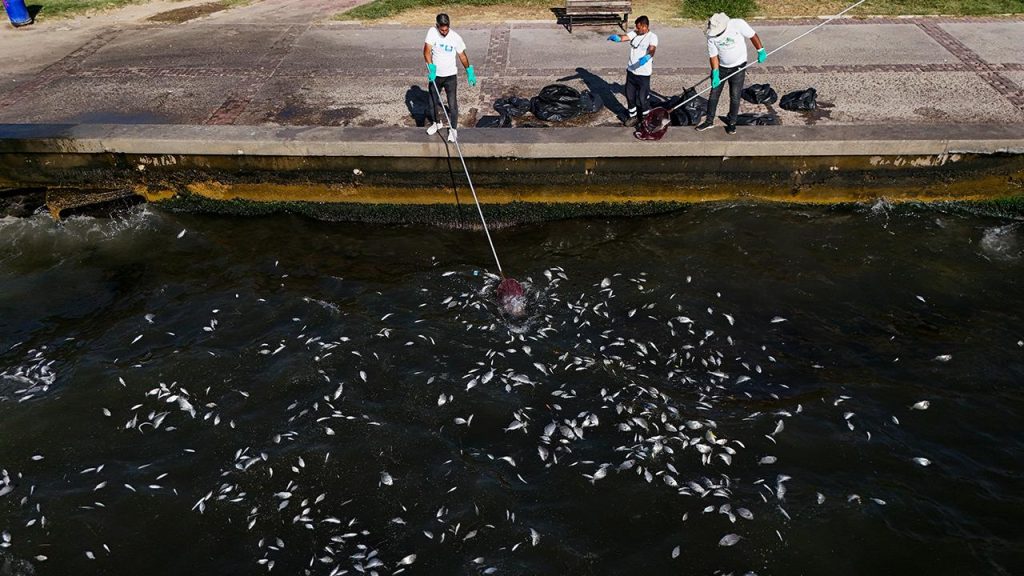On August 20th in the city, the problem of dead fish washing up on Turan Sahili in Bayraklı district and the emergence of a bad smell has led to ongoing efforts to identify and prevent pollution sources. In this regard, experts led by Prof. Dr. Alper Doğan, the Head of the Basic Sciences Department at Ege University’s Fisheries Faculty, prepared a report titled “Investigation of Fish Deaths and Bad Smell Causes in Izmir Bay.” Prof. Dr. Alper Doğan noted that they had not previously seen such a loss of species and individuals in the bay, and although fish deaths were more commonly discussed, they found that marine life on the seabed was also significantly reduced.
To understand what was happening on the seafloor, Doğan explained that they conducted sampling to see how other organisms besides fish were affected by the situation. In their coastal sampling, they found that even the most resilient organisms, such as mussels, had completely died off, with not a single live individual remaining. They also compared data from previous years, noting a drastic decrease in the number of species and individuals in their sampling areas. The results were alarming, signaling a significant impact on marine life in the region.
In the short term, Doğan pointed out that the only expectation to prevent further deaths was for the weather to cool down. He explained that as temperatures decrease, metabolic activities of organisms decrease, reducing their oxygen needs while the water’s oxygen-holding capacity increases. Additionally, he suggested that aerating at least one heavily affected area in the inner bay could help support the survival of fish and other organisms. He emphasized the importance of immediate action to address the situation and prevent further ecological damage.
Doğan also highlighted that the pollution in the middle bay was preventing marine life from escaping from the inner bay to the outer bay, contributing to the high number of fish deaths. He explained that in the past, the inner bay was the primary area of concern, and fish would typically move towards the outer bay to find relief. However, with the pollution spreading to the middle bay, the fish seeking to escape are encountering even more unfavorable conditions, leading to increased mortality rates in the region.
It was noted by the Deputy Dean of the Fisheries Faculty, Prof. Dr. Tolga Dinçer, that the fish deaths were linked to pollution in the inner bay. The samples collected did not show any signs of microbiological or parasitic findings, indicating that the primary cause was likely oxygen deficiency. Ege University Rector, Prof. Dr. Necdet Budak, expressed their commitment to contributing scientifically to the efforts carried out by the Ministry of Environment, Urbanization and Climate Change and Izmir Metropolitan Municipality to address the issue in Izmir Bay. He assured that the university would continue to provide support in finding solutions to the environmental challenges facing the region.


